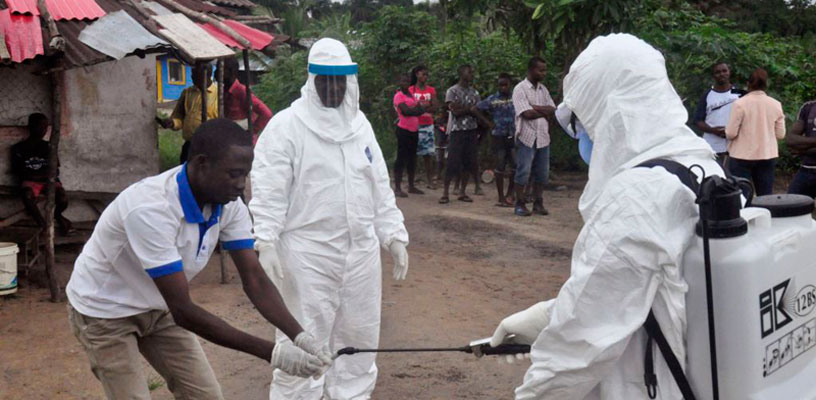Health
ARC insurance to help offset Ebola epidemic outbreaks
JOHANNESBURG – The African Union’s (AU) African Risk Capacity (ARC) agency is developing an insurance product to facilitate first-line and rapid financial responses to disease outbreaks. It will start with Ebola, Marburg, Meningitis, and Lassa fever.
ARC consists of an insurance company and an agency that were established in 2012 to help AU member states to improve their capacities to better plan, prepare and respond to weather-related disasters. The ARC Limited is a mutual insurance facility providing risk transfer services through risk-pooling and access to reinsurance markets
Uganda’s and Guinea’s ministries of Health have been selected to implement ARC’s Outbreak and Epidemic (OE) Pilot Programme. They are some of the over 30 countries across Africa at risk of an outbreak of one or more of these four epidemic-prone diseases.
OE builds on ARC’s successes in implementing climate disaster-risk financing programmes in Africa. It is an integrated system to enable governments to respond early and effectively to public health emergencies.
The programme will work with countries to determine their epidemic risks and select pathogens. It will improve their early warning systems, create pre-established contingency plans for rapid response, and provide access to swift disbursement of financing through parametric insurance.
ARC’s Director General, who is also the United Nations Assistant Secretary General, Mohamed Beavogui, said, “Identifying this first set of pathogens for our programme is a significant milestone. After working closely with the governments of Uganda and Guinea, and with WHO AFRO, Africa CDC, and other stakeholders, it is a product that will make a difference for Africa. It targets the public health needs of Africans that was built through African and international collaboration.”
The highest global incidence of bacterial meningitis occurs in the “meningitis belt” of Africa, spanning 26 countries from Senegal to Ethiopia. West, East and Central African nations are at risk of outbreaks of the Marburg virus disease and Lassa fever, both of which are viral haemorrhagic fevers.
The 2015 Ebola outbreak in West Africa resulted in 11,310 deaths in Guinea, Sierra Leone and Liberia with a combined estimated economic impact of $2.8 billion, according to the World Bank. estimates. Initiating the Ebola response two months earlier could have reduced the fatalities by up to 80%.
Beavogui said; “African governments identified the need for faster financing to avoid another tragedy like the recent Ebola outbreak in West Africa. And ARC is working in close collaboration with governments and our partners to address that need. We are creating an innovative system that acts early to finance efficient, effective responses to help stem an outbreak before it reaches a crisis level.”
The OE Pilot Programme is supported by The Rockefeller Foundation and Swiss Development Cooperation. Metabiota Incorporated, Health Systems Consult Limited and public health economists affiliated to Columbia University. It is owned by AU member states with active insurance policies and capital contributions of KfW Development Bank and the UK Department of International Development (DfiD).
When launched as a full product in December 2019, and made available to all AU countries, OE will help strengthen African health systems. It will contribute to the national capacities in risk profiling and contingency, response planning and ensuring that slow and unpredictable funding does not continue to prevent African countries and partners from adequately responding to outbreaks and epidemics.
ByChineduMoghalu
Comments

























